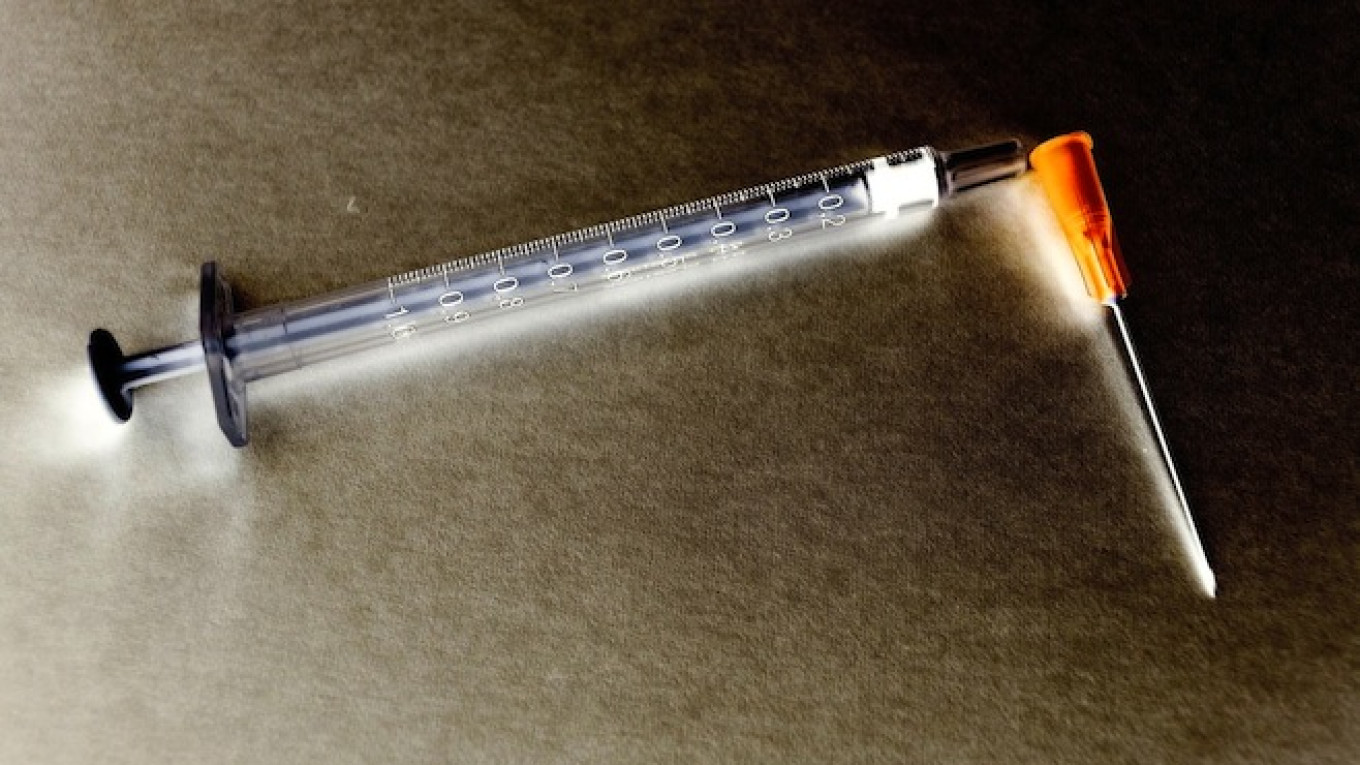The amount that Russia's addicts spend on drugs each year is 50 percent more than the nation's annual defense budget, the head of the Federal Drug Control Service has said.
The drug service, or FSKN, estimated the combined amount that Russia's drug addicts spend on drugs each day was 4.5 billion rubles ($108 million), which amounts to more than 1.6 trillion ($39 billion) per year, the agency's director Viktor Ivanov told Moscow's Govorit Moskva radio on Thursday.
"This, by the way, is 50 percent more than the budget of the Defense Ministry of the Russian Federation," he was quoted as saying by the state-run RIA Novosti news agency.
Russia's 2014 budget envisages military spending of 2.49 trillion rubles ($48.9 billion) to be increased to 3.03 trillion rubles ($70.5 billion) by 2016, RIA Novosti reported earlier.
Ivanov did not specify how his agency arrived at its estimate, but was quoted by RIA Novosti as saying law enforcement agents had seized a total of 22 tons of synthetic drugs by October this year — a volume intended to indicate the scope of Russia's drug problem.
A Message from The Moscow Times:
Dear readers,
We are facing unprecedented challenges. Russia's Prosecutor General's Office has designated The Moscow Times as an "undesirable" organization, criminalizing our work and putting our staff at risk of prosecution. This follows our earlier unjust labeling as a "foreign agent."
These actions are direct attempts to silence independent journalism in Russia. The authorities claim our work "discredits the decisions of the Russian leadership." We see things differently: we strive to provide accurate, unbiased reporting on Russia.
We, the journalists of The Moscow Times, refuse to be silenced. But to continue our work, we need your help.
Your support, no matter how small, makes a world of difference. If you can, please support us monthly starting from just $2. It's quick to set up, and every contribution makes a significant impact.
By supporting The Moscow Times, you're defending open, independent journalism in the face of repression. Thank you for standing with us.
Remind me later.


